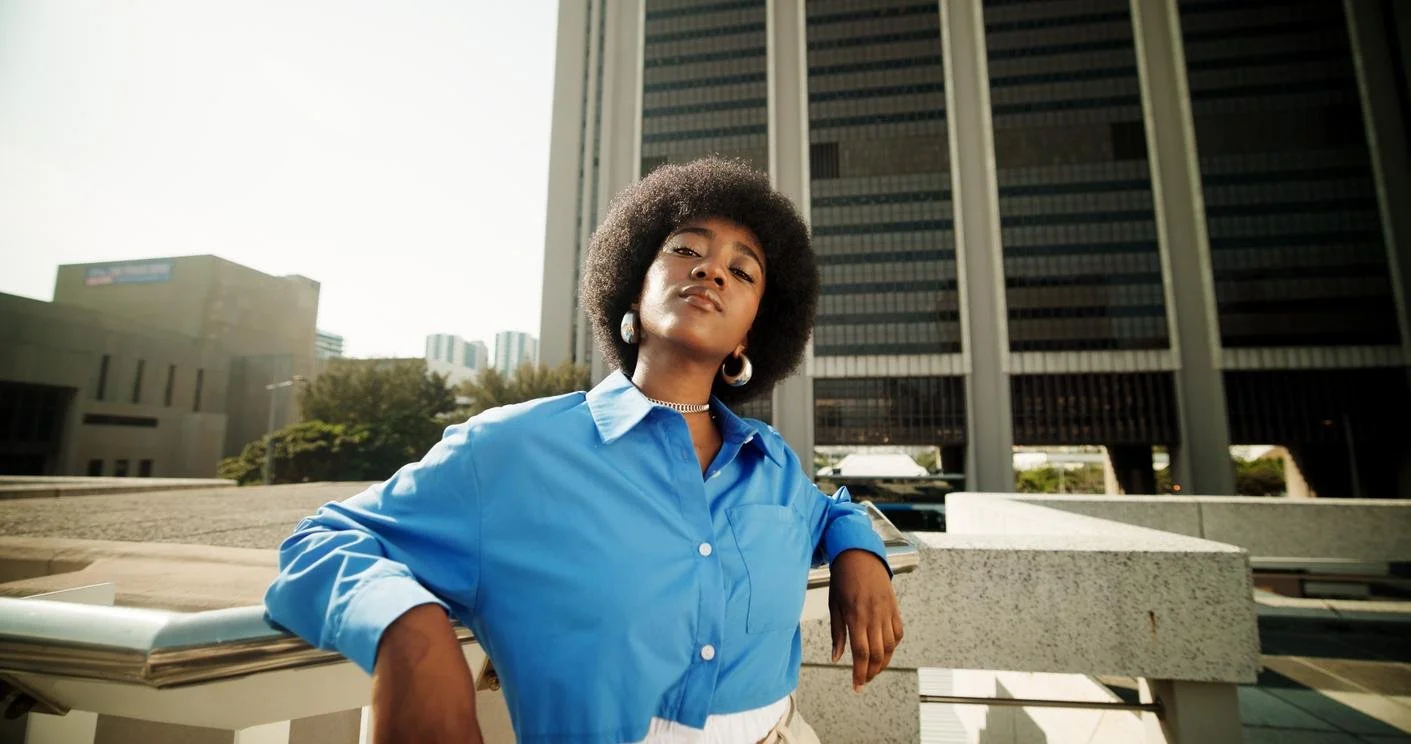Why Taking a Break from Dating Might Be the Best Choice
Taking a break from dating empowers you to rediscover yourself, heal emotionally, and build independence, paving the way for healthier, more fulfilling relationships. We discuss it here!
Photo Credit: Jacob Wackerhausen via iStockPhoto.com
By: Jamila Gomez
In a world where dating apps, social expectations, and romantic pressures dominate, taking a break from dating might seem counterintuitive. However, stepping back from the pursuit of love can actually be one of the healthiest and most beneficial decisions you make for yourself. Whether you’ve experienced a string of unsuccessful relationships, emotional burnout, or simply feel disconnected from yourself, a dating hiatus can provide clarity, healing, and personal growth.
1. Time for Self-Discovery
One of the most significant benefits of taking a break from dating is the opportunity to reconnect with yourself. When actively seeking a partner, it’s easy to lose sight of personal goals, interests, and values. A pause allows you to reflect on what you truly want in a relationship, assess past patterns, and redefine your priorities. This period of self-discovery can lead to stronger self-awareness and confidence, making future relationships healthier and more fulfilling.
2. Emotional Healing and Clarity
Breakups, disappointments, and dating fatigue can take a toll on mental and emotional well-being. Jumping from one relationship to another without properly processing emotions can lead to unresolved baggage. Taking a break gives you the necessary space to heal, understand past experiences, and break unhealthy relationship cycles. It helps you approach love from a place of wholeness rather than from loneliness or desperation.
3. Stronger Sense of Independence
Relying on romantic relationships for happiness or validation can be a slippery slope. Stepping away from dating encourages self-sufficiency and the realization that fulfillment comes from within. Learning to enjoy your own company, pursuing personal passions, and building strong platonic relationships can significantly enhance your quality of life. When you do decide to date again, you’ll enter relationships with a stronger foundation of self-worth and independence.
4. Avoiding Dating Burnout
Constantly navigating the ups and downs of dating can be exhausting. Swiping on apps, going on multiple dates, and facing repeated disappointments can lead to emotional exhaustion and cynicism. Taking a break provides a much-needed mental reset, allowing you to return to dating with fresh enthusiasm, patience, and a healthier mindset.
5. Attracting the Right Partner
When you’re content with yourself and clear on what you want, you naturally attract healthier and more compatible partners. Rushing into relationships out of fear of being alone often leads to settling for less than you deserve. A dating break helps you gain clarity on your standards, ensuring that future relationships are based on mutual compatibility rather than urgency.
Taking a break from dating isn’t about giving up on love—it’s about investing in yourself. When you take time to heal, grow, and rediscover what truly makes you happy, you set the stage for a more fulfilling romantic future. Love will come when the time is right, but until then, prioritize your well-being and enjoy the journey of self-love.
YOU MAY ALSO BE INTERESTED IN:
SHARE TO SOCIAL MEDIA
How Past Relationships Shape Our Future Love Life
Learn how past relationships shape your future love life by teaching valuable lessons, healing emotional wounds, and building emotional resilience that helps you set healthy boundaries and form fulfilling connections. We discuss it here!
Photo Credit: Jacob Wackerhausen via iStockPhoto.com
By: Jamila Gomez
Love is a journey filled with lessons, emotions, and personal growth. Every relationship we experience leaves an imprint on us, shaping how we perceive love, trust, and commitment. Whether it ended in heartbreak or mutual understanding, our past relationships influence how we approach new romantic connections. From emotional baggage to valuable lessons, here’s how our past relationships mold our future love life.
1. Learning from Mistakes
One of the most significant ways past relationships shape us is by teaching us what works and what doesn’t. When a relationship ends, we reflect on what went wrong—was it poor communication, mismatched values, or unmet expectations? These insights help us make better choices in the future, ensuring we don’t repeat the same mistakes.
For instance, if someone has experienced a relationship where they felt unheard, they may prioritize finding a partner who values open and honest communication. This self-awareness allows for healthier and more fulfilling connections.
2. Emotional Baggage and Healing
Not all relationships end on good terms, and sometimes, they leave emotional scars. Betrayal, heartbreak, and toxic dynamics can create trust issues, fear of vulnerability, or low self-esteem. If these wounds are left unhealed, they can affect future relationships, causing unnecessary insecurities or defensive behaviors.
However, when people take time to heal and reflect on their emotional wounds, they enter new relationships with a clearer mind and an open heart. Acknowledging and working through past pain leads to emotional maturity and prevents repeating unhealthy patterns.
3. Understanding Personal Needs and Boundaries
Every relationship provides an opportunity to understand what we truly need from a partner. Some people may realize they need emotional support, while others may prioritize independence. Past relationships help clarify these needs, making it easier to set healthy boundaries in the future.
For example, someone who once felt suffocated in a controlling relationship might recognize the importance of personal space and seek a partner who respects their independence. Recognizing and asserting these boundaries helps create balanced and respectful relationships.
4. Building Emotional Resilience
Breakups and failed relationships, while painful, also build emotional resilience. Overcoming heartbreak teaches people how to cope with disappointment, adapt to change, and emerge stronger. This resilience makes individuals more capable of handling challenges in future relationships, fostering patience, understanding, and maturity.
Past relationships are not just chapters of our love life but stepping stones toward personal growth and healthier future relationships. They teach us valuable lessons, help us heal, and shape our understanding of love. By embracing these experiences, we can move forward with confidence, ready to build meaningful and fulfilling romantic connections.
YOU MAY ALSO BE INTERESTED IN:
SHARE TO SOCIAL MEDIA
Forgiveness vs. Letting Go: Understanding the Differences and Their Importance
Understanding the differences between forgiveness and letting go can aid in emotional healing and foster healthier relationships. We discuss it here!
Photo Credit: fizkes via iStockPhoto.com
By: Jamila Gomez
In our journey through life, we often encounter situations that hurt us, leaving emotional scars that can be challenging to heal. Two concepts that frequently arise in the context of emotional healing are forgiveness and letting go. While they are closely related, they are not synonymous. Understanding the differences between forgiveness and letting go can help us navigate our emotions and foster healthier relationships.
Forgiveness: A Conscious Act of Compassion
Forgiveness is a deliberate and often difficult decision to release feelings of resentment, anger, or revenge toward someone who has wronged us. It is an act of compassion and empathy that involves recognizing the humanity of the person who caused the harm, despite their actions.
Key Aspects of Forgiveness:
Acknowledgment of Hurt:
Forgiveness begins with acknowledging that we have been hurt or wronged. This recognition is crucial as it validates our feelings and sets the stage for healing.
Empathy and Understanding:
True forgiveness often requires understanding the reasons behind the offending person's actions. This does not mean excusing their behavior but rather seeing them as flawed individuals capable of mistakes.
Conscious Choice:
Forgiveness is a conscious decision. It is not something that happens passively over time but requires active effort to let go of negative feelings and thoughts.
Release of Resentment:
By forgiving, we release the hold that resentment and anger have on us. This does not mean we forget the hurt or condone the behavior, but we no longer allow it to control our emotions or dictate our actions.
Internal Peace:
The ultimate goal of forgiveness is to achieve inner peace. Holding onto grudges can be emotionally and physically draining, while forgiveness can lead to emotional liberation and well-being.
Letting Go: The Art of Emotional Liberation
Letting go, on the other hand, is a broader concept that involves releasing attachment to negative emotions, memories, or situations that hinder our personal growth and happiness. It is an internal process of detachment that does not necessarily require an interpersonal component.
Key Aspects of Letting Go:
Emotional Detachment:
Letting go involves detaching from emotions and thoughts that no longer serve our well-being. It is about releasing the grip of the past to make room for new experiences.
Acceptance:
A crucial part of letting go is accepting that we cannot change the past. It involves embracing reality as it is, without resistance, and moving forward with our lives.
Self-Focus:
Letting go is primarily about our own emotional health. Unlike forgiveness, which often involves another person, letting go is an internal process focused on our personal journey.
Freedom from the Past:
Letting go allows us to free ourselves from the constraints of past hurts and regrets. It enables us to live in the present moment and look forward to the future with optimism.
Empowerment:
By letting go, we reclaim our power over our own emotions and life. We stop allowing past events or people to dictate our present happiness and future potential.
The Interplay Between Forgiveness and Letting Go
While forgiveness and letting go are distinct concepts, they often intersect and complement each other in the healing process. Forgiveness can be a step toward letting go, as it helps to release the emotional burden associated with a particular person or event. Conversely, letting go can create the emotional space needed to genuinely forgive.
Scenarios of Interplay:
Forgiving but Not Forgetting: Sometimes, we may forgive someone but find it difficult to let go of the memories of the hurt. This is where the practice of letting go becomes essential to fully heal and move on.
Letting Go Without Forgiveness: In certain situations, we might not be ready or willing to forgive, but we can still choose to let go of the negative emotions for our own peace of mind. This can be a healthy way to disengage from toxic relationships or past traumas.
Forgiveness and letting go are both powerful tools for emotional healing and personal growth. While forgiveness involves a conscious decision to release resentment toward another person, letting go is an internal process of detachment from negative emotions and memories. Understanding the nuances of each can help us better navigate our emotional landscape, leading to healthier relationships and a more fulfilling life. Ultimately, both practices are about reclaiming our peace and empowering ourselves to live authentically and joyfully.












